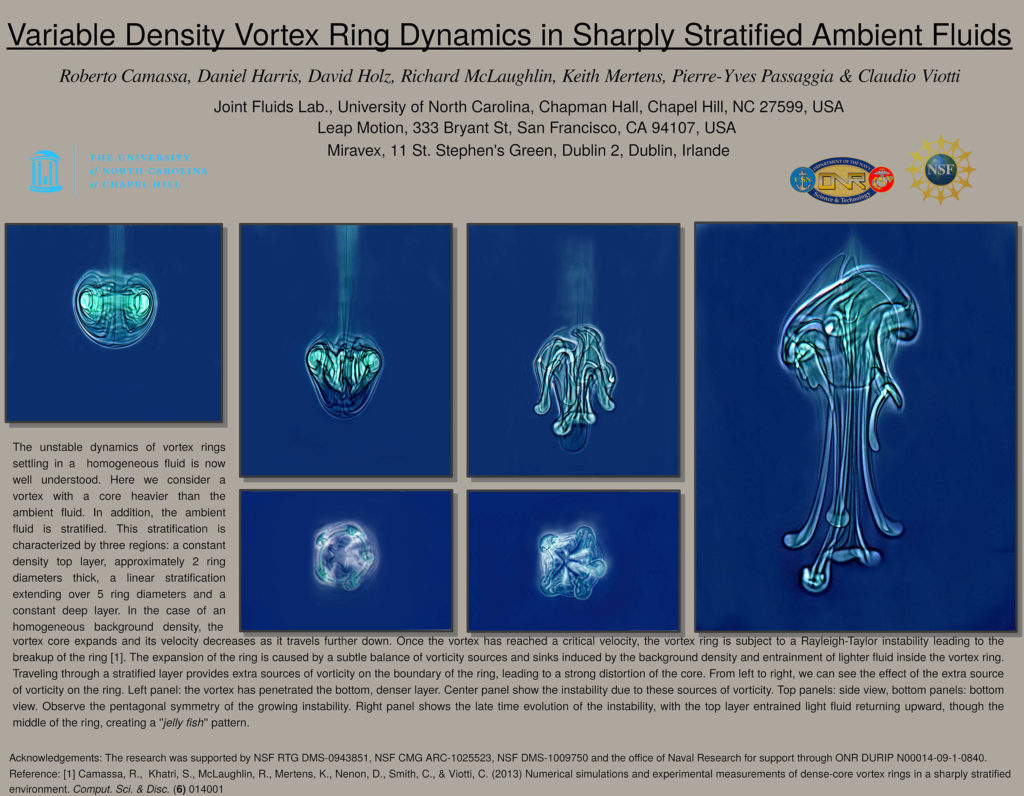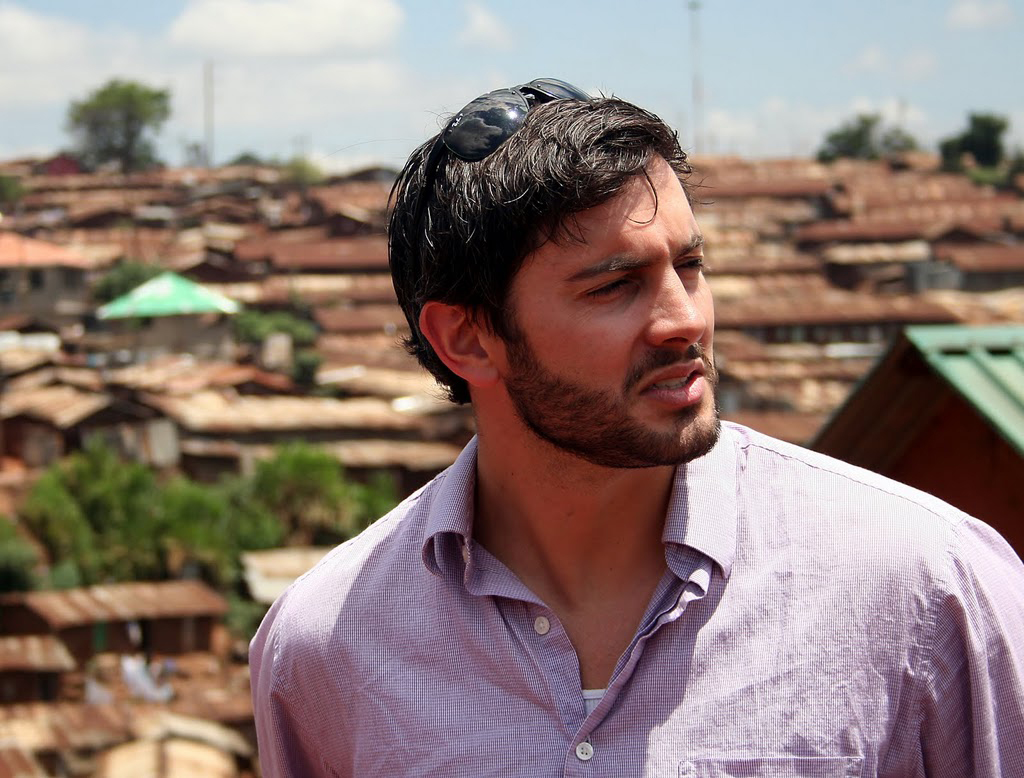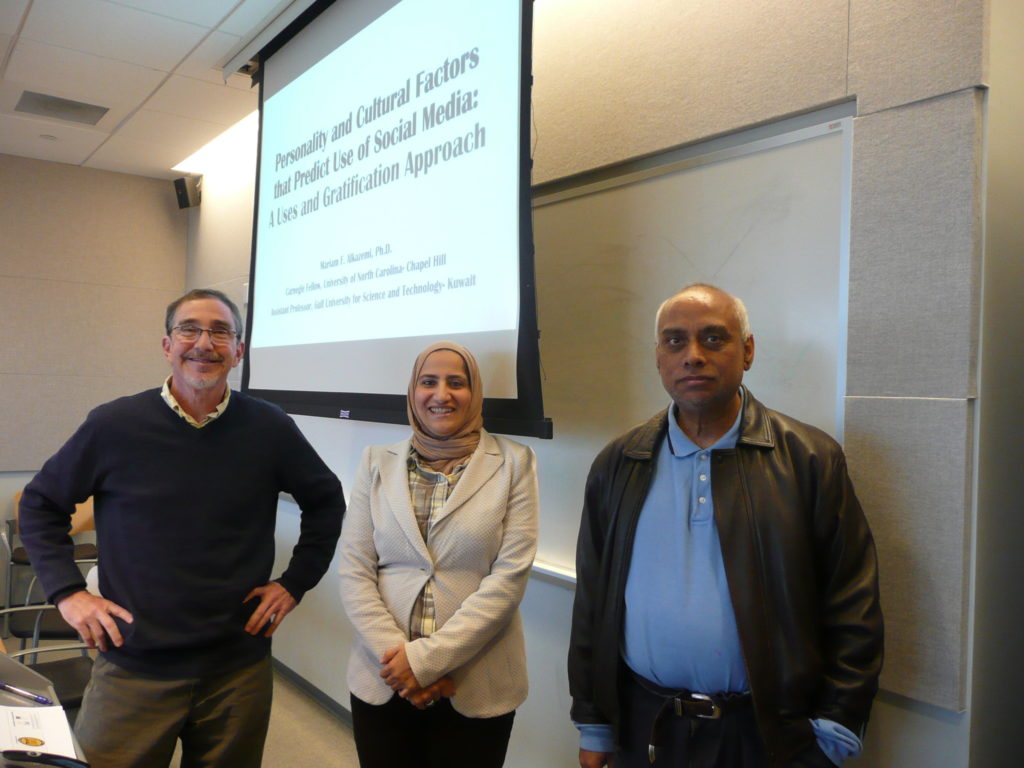[iframe width=”609″ height=”375″ src=”http://player.d.nationalgeographic.com/players/ngsvideo/share/?guid=00000149-8695-d6e9-a56b-eebdd0310001″ frameborder=”0″ allowfullscreen seamless]
An environmental engineer who studies nanoparticles and competitively races downhill mountain bikes. A wildlife biologist who traverses across North Carolina’s most remote swamplands to tag wildlife and monitor flooding. A 7-year-old budding scientist who collects rocks, builds circuits and has a pet snake.
Carolina doctoral student and marine ecologist Clare Fieseler features these three women in her documentary photography project, “Outnumbered.” Her goal is to capture female scientists who break stereotypes, to detail their work and passions outside of the lab and in the field, and to inspire young women to pursue science, technology, engineering and mathematics (STEM) careers.
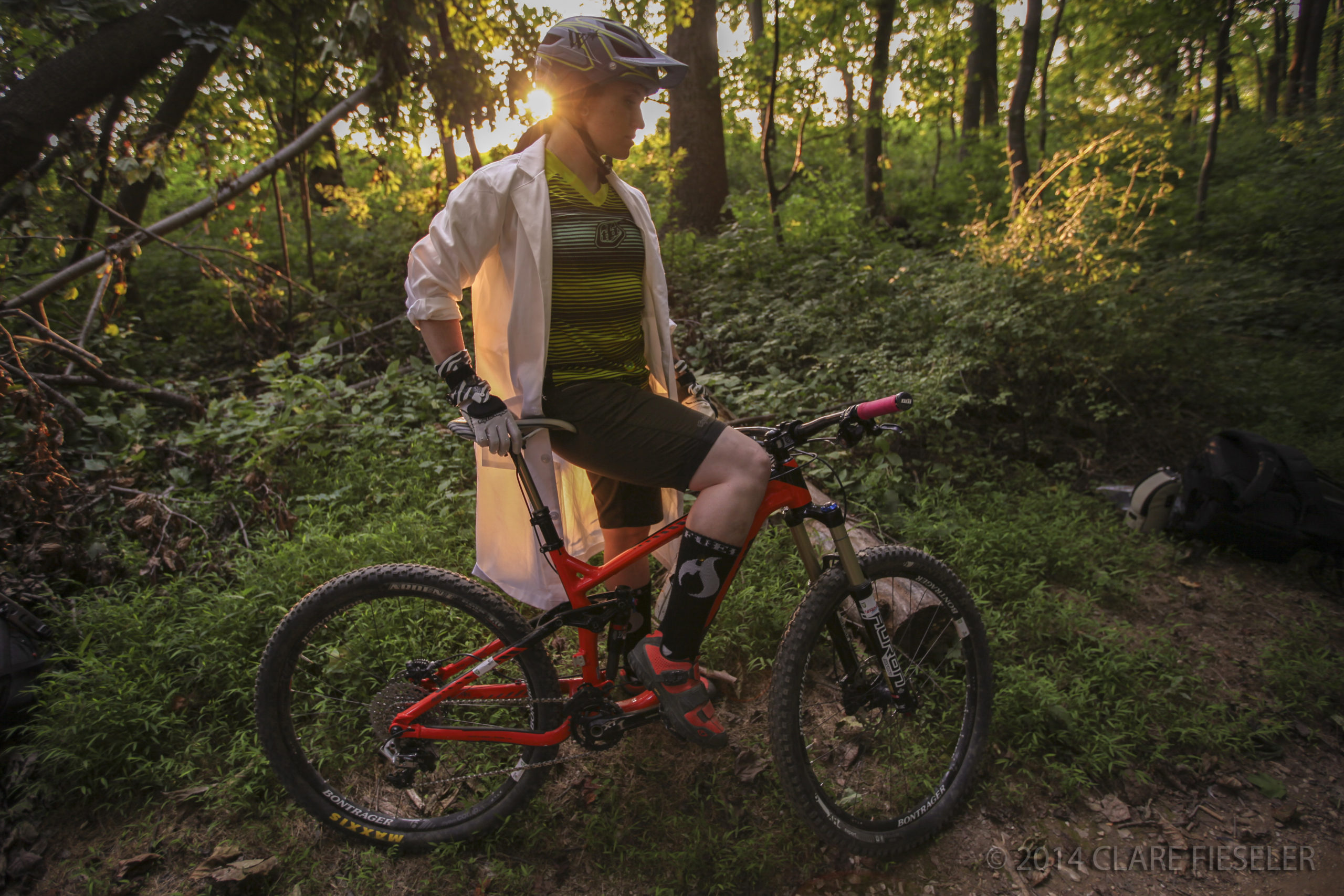
Fieseler is pursuing a Ph.D. in the curriculum for the environment and ecology in UNC’s College of Arts and Sciences, completing interdisciplinary research in coral reef resilience and marine management. Her project won a 2014 North Carolina Documentary Photography Award from UNC Libraries. Undergraduate and graduate student winners submit photography-focused research proposals, and their resulting images become a permanent part of the photographic archives of the North Carolina Collection in Wilson Library.
Fieseler is a former National Geographic filmmaker and grant recipient, and those connections sparked interest from National Geographic in creating a video about her “Outnumbered” project.
“We owe it to young girls right now to share our own stories, not as cautionary tales, but as motivation,” said Fieseler, who is spending the remaining weeks of November at the Smithsonian’s Carrie Bow Caye Field Station in Belize working on her research.
From her project proposal, she asks: “What do women of science look like? What are their questions, dreams and struggles? … I see female successes and struggles as a powerful visual legacy. The end goal is to communicate current challenges and help motivate young scientists to confront them.”
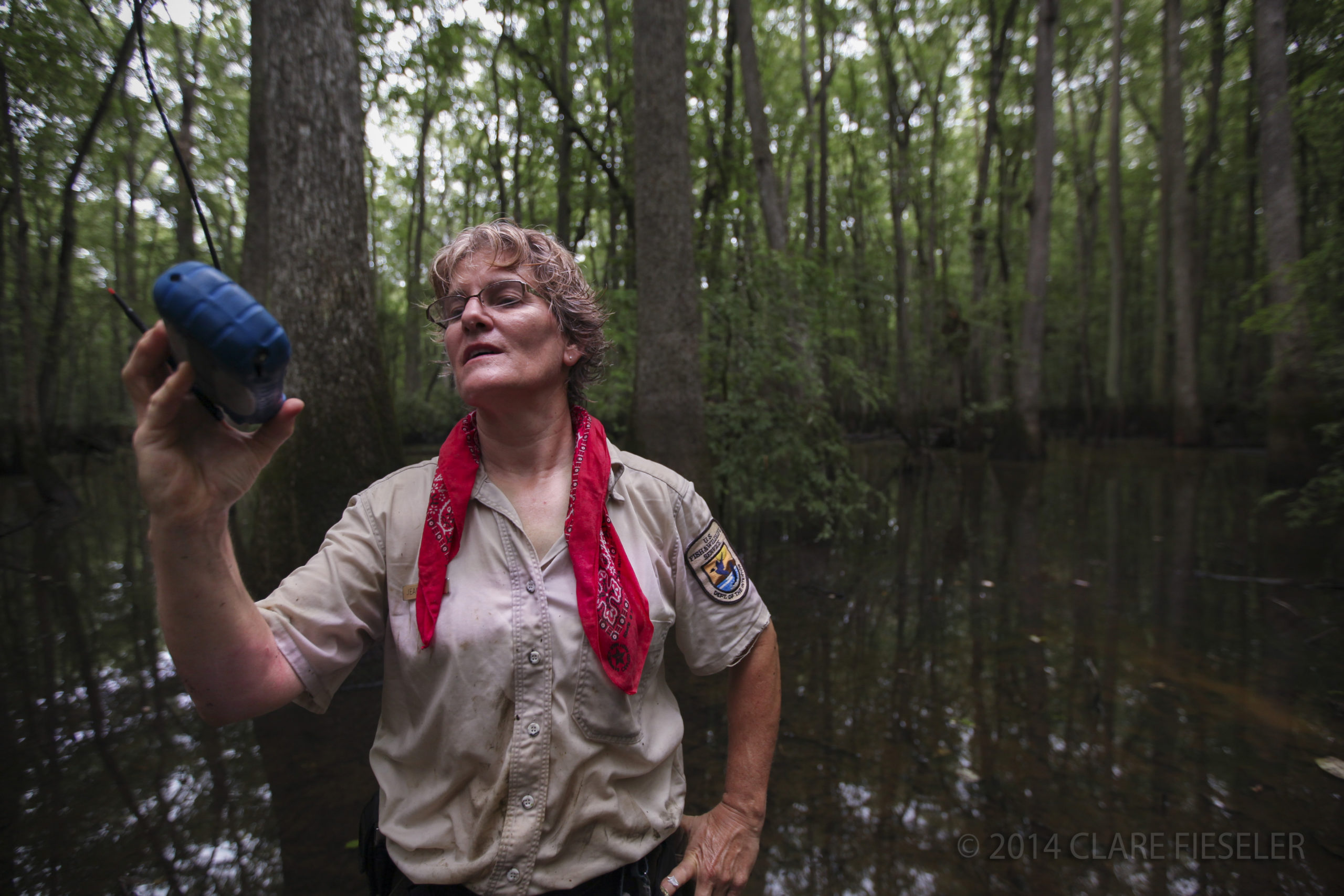
Sarah Joseph, producer of the National Geographic video, said Fieseler’s project is particularly meaningful to her.
“I’ve experienced many of the same gender stereotypes and discrimination that fueled Clare to undertake her documentary photography project. First, as a female scientist with a Ph.D. in animal behavior, and today in the still largely male-dominated world of production,” Joseph said. “It’s a privilege to help showcase these amazing women pursuing their passions, and I hope it will help inspire others to do the same.”
Fieseler got the idea for the project after participating in a panel on women in science for high school girls at the North Carolina School of Science and Mathematics (NCSSM) in Durham. A focus group of NCSSM students informed her project.
Students will also be helping to develop a companion “Outnumbered” website to be released in early 2015. Amy Sheck, dean of science at NCSSM, said the idea of creating strong photos of women in science is “incredibly powerful.”
“What Clare can do with these images is say, ‘This is what a scientist looks like, and it’s not a cartoon of a person in a lab coat with crazy hair who’s a man,’” Sheck said. “I think part of her agenda is to humanize scientists, to show that they are multifaceted people with a life story, not to show them as their graphs and data, but the story of the person behind the science.”
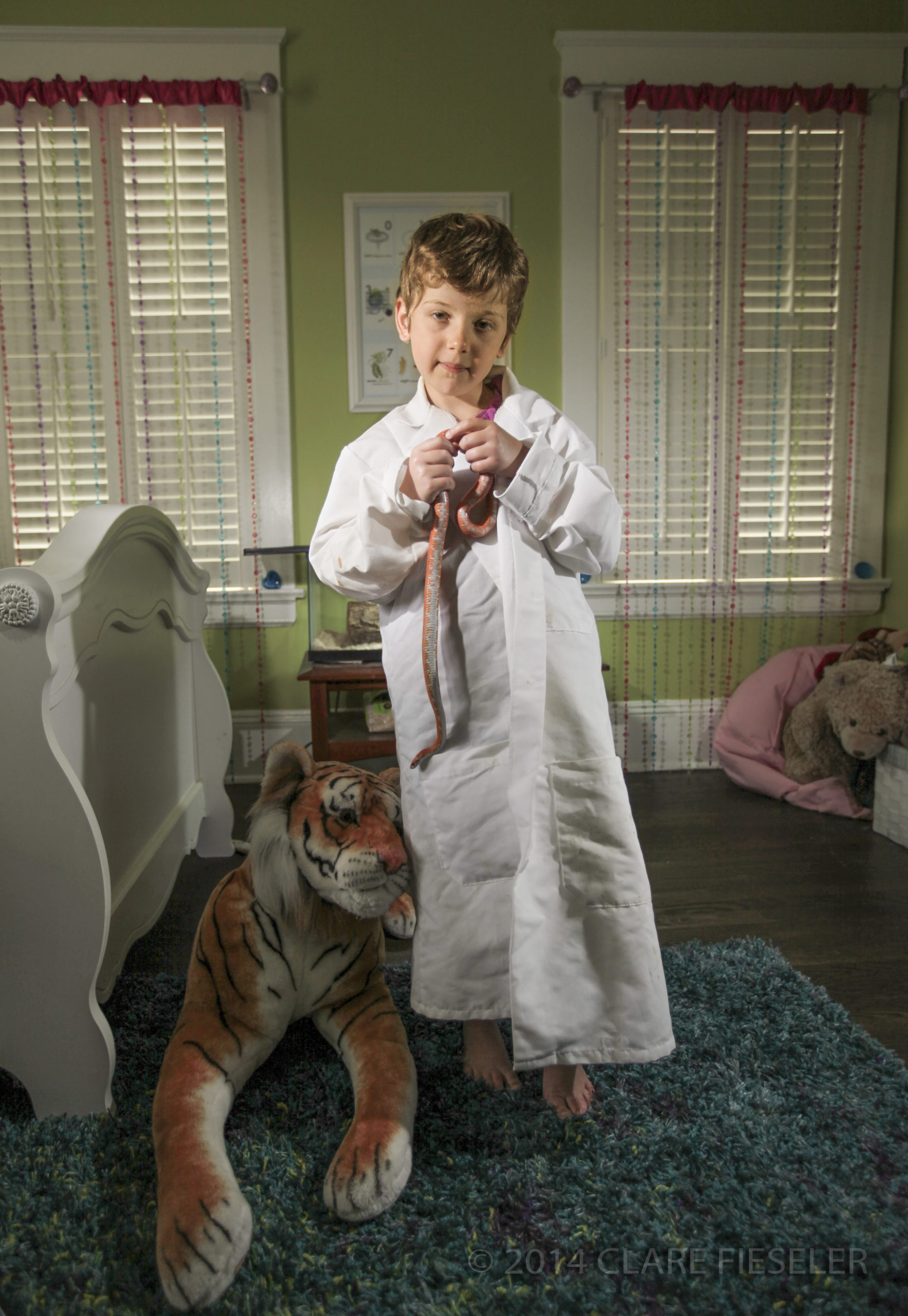
Fieseler also blogs for National Geographic and does freelance reporting for National Public Radio. In 2013, she won a National Science Foundation competition for co-founding the Scientists with Stories project, which creates intensive video, photography and storytelling training and professional exhibition opportunities for doctoral students at UNC and Duke University. She was also one of the organizers of the spring 2014 #ScienceFail, an event that revolved around oral storytelling with an emphasis on seeing value in failures in science.
Biology Professor and UNC Graduate School Dean Steve Matson has been a mentor for Fieseler’s efforts to help scientists become better communicators, which he says will serve both science and the general public.
“Clare has been a fearless and tireless champion for the importance of scientists ‘telling their stories’ in ways that focus on the story of their journey rather than simply recounting their results,” Matson said. “These stories inspire the spirit of discovery in others while providing relevant and important information for the non-scientist.”
The deadline for the 2015 North Carolina Documentary Photography Award competition is Jan. 9. For more information, visit http://go.unc.edu/Le6y9.
Story by Kim Weaver Spurr ’88, Video by National Geographic, Images by Clare Fieseler (Click on images to view them at a larger size).

